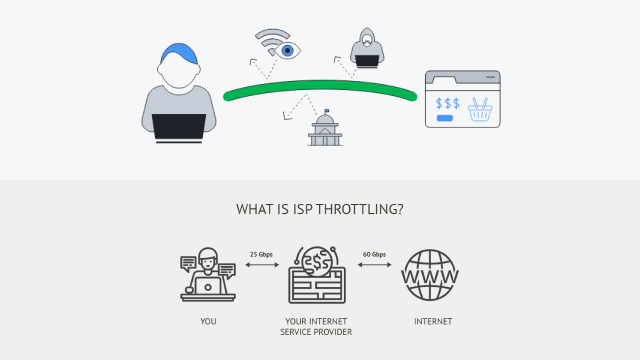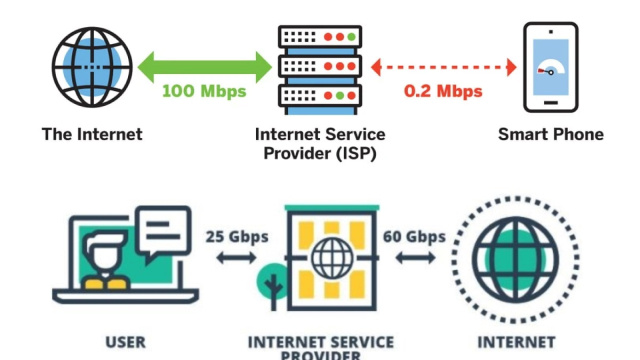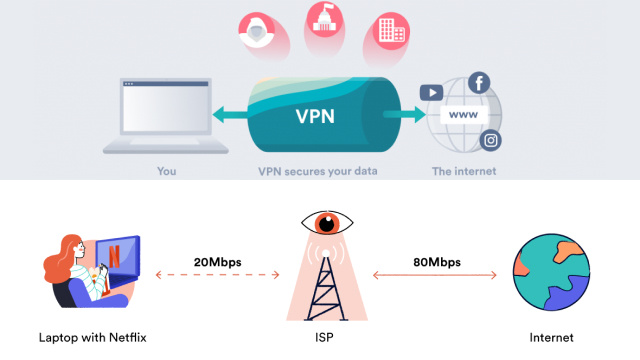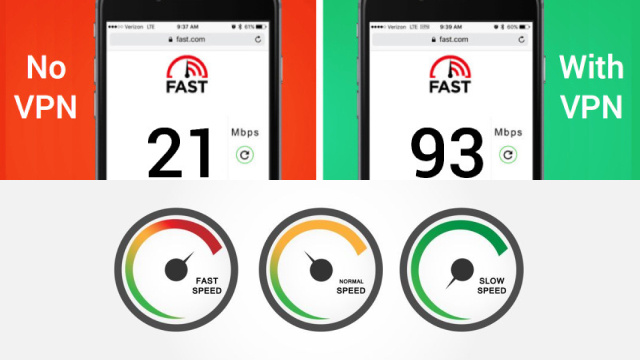Understanding Internet Throttling: What It Is and How It Works
Internet throttling is a term used to describe a practice employed by internet service providers (ISPs) to intentionally slow down the internet speed of users. This can happen at any time without warning and can significantly affect the quality of your internet experience. The practice of internet throttling is most commonly used during times of high internet traffic, when the ISP’s network is being overloaded.
ISPs use a technique known as Deep Packet Inspection (DPI) to identify which applications or websites are using the most bandwidth. Once identified, the ISP can selectively slow down the internet speed for those particular applications or websites, while allowing other services to operate at full speed. This is often done to prevent network congestion and ensure that all users have access to a stable and reliable internet connection.
However, internet throttling can also be used as a tactic to enforce data caps or limit access to certain services. Some ISPs have been known to throttle internet speeds for users who exceed their monthly data limit or to prevent access to websites that they deem to be using too much bandwidth.
While ISPs have the right to manage their networks, internet throttling has become a contentious issue, with many calling for stronger regulations to prevent ISPs from abusing their power. Understanding internet throttling and how it works is an important step in protecting your online privacy and ensuring fair access to the internet.
Identifying Internet Throttling by Your ISP: Signs to Look Out For
Internet throttling can be difficult to identify, as it can happen without warning and can be mistaken for other issues. However, there are some signs that can help you identify if your ISP is throttling your internet speeds.
One of the most obvious signs of internet throttling is a sudden and significant drop in internet speed. If you notice that your internet speeds are consistently slower than what you’re paying for, even during times of low internet traffic, it may be a sign of throttling.
Another sign to look out for is a decrease in the quality of streaming videos or audio. If your videos or audio files are constantly buffering or taking longer than usual to load, it could be a sign that your ISP is throttling your internet speeds.
Additionally, if you notice that certain websites or applications are consistently slower than others, it could be a sign that your ISP is selectively throttling certain services.
To confirm whether or not your internet speeds are being throttled, you can run speed tests at different times throughout the day to see if there are any patterns. You can also try using a Virtual Private Network (VPN) to mask your internet traffic and see if that improves your internet speeds.
Overall, identifying internet throttling by your ISP can be tricky, but by paying attention to your internet speeds and quality of service, you can better determine if throttling is occurring and take steps to address the issue.
Reasons Why ISPs Throttle Internet Speeds: The Need for Net Neutrality
Internet Service Providers (ISPs) may throttle internet speeds for various reasons, including network congestion management, enforcing data caps, or to promote their own services. However, the need for net neutrality is becoming increasingly important as ISPs may also throttle internet speeds to favor certain websites or applications over others.
Net neutrality is the principle that all internet traffic should be treated equally, without discrimination or preference given to certain services or content. Without net neutrality, ISPs have the power to selectively throttle or block access to websites or applications that compete with their own services or that they deem to be using too much bandwidth.
The lack of net neutrality can have serious consequences for internet users and businesses, as it limits their ability to freely access and distribute information online. It can also stifle innovation and competition by giving ISPs too much power over the flow of internet traffic.
In order to ensure a fair and open internet, it is important for policymakers to enact and enforce net neutrality laws that prevent ISPs from throttling internet speeds or discriminating against certain types of internet traffic.
Ways to Stop Internet Throttling by Your ISP: Tips and Tricks
If you suspect that your internet speeds are being throttled by your ISP, there are several tips and tricks that you can try to help stop it:
- Use a wired connection: Wi-Fi signals can be easily disrupted, leading to slower internet speeds. Using a wired connection can help provide a more stable and reliable internet connection.
- Limit streaming and downloads: ISPs may throttle internet speeds when users are streaming videos or downloading large files. Limiting these activities can help prevent throttling.
- Use a different DNS server: Your ISP may be using a DNS server that slows down your internet speeds. Switching to a different DNS server, such as Google or Cloudflare, can help improve your speeds.
- Reset your modem/router: Resetting your modem/router can help clear any network congestion or settings that may be causing throttling.
- Contact your ISP: If you have tried these tips and still experience internet throttling, contact your ISP and ask them to stop the practice. If they do not comply, consider filing a complaint with the Federal Communications Commission (FCC).
By following these tips and tricks, you can help stop internet throttling by your ISP and enjoy faster and more reliable internet speeds.
Legal Options for Dealing with Internet Throttling by Your ISP
If you have tried all the tips and tricks to stop internet throttling by your ISP without success, you may want to consider legal options. Here are some legal options for dealing with internet throttling:
- File a complaint with the Federal Communications Commission (FCC): The FCC regulates the activities of ISPs and can investigate cases of internet throttling. You can file a complaint with the FCC online, by phone, or by mail.
- Contact a consumer protection agency: Consumer protection agencies can help you file a complaint against your ISP and may provide legal assistance in dealing with the issue.
- Seek legal counsel: If you want to take legal action against your ISP, it may be necessary to hire an attorney who specializes in internet law.
- Join a class-action lawsuit: If many people are experiencing internet throttling from the same ISP, a class-action lawsuit may be an effective way to hold the ISP accountable and obtain compensation for damages.
It’s important to note that legal options can be time-consuming and costly, so it’s best to exhaust all other options before pursuing legal action.
Preventing Internet Throttling by Your ISP: How to Keep Your Internet Speeds Fast and Consistent
Preventing internet throttling by your ISP is important for ensuring fast and consistent internet speeds. Here are some ways to keep your internet speeds fast and consistent:
- Choose a reliable ISP: Research ISPs in your area and choose one that is known for providing consistent and reliable internet speeds.
- Upgrade your internet plan: If you are experiencing slow internet speeds, it may be because you are on a lower-tier internet plan. Consider upgrading to a higher-tier plan to ensure faster speeds.
- Use a wired connection: Wi-Fi signals can be disrupted and slow down your internet speeds. Using a wired connection can help provide a more stable and reliable internet connection.
- Keep your router and modem up to date: Make sure your router and modem are updated with the latest firmware to ensure optimal performance.
- Use a content delivery network (CDN): CDNs can help improve your internet speeds by caching content and delivering it from servers closer to your location.
By following these tips, you can help prevent internet throttling by your ISP and enjoy fast and consistent internet speeds.
Conclusion: Fighting for a Free and Open Internet
In conclusion, internet throttling is a practice that undermines the principles of a free and open internet. It limits access to information and hinders innovation, and ultimately harms consumers. It is important for individuals to be aware of the signs of internet throttling, and to take action to prevent and stop it.
There are several ways to fight for a free and open internet, such as advocating for net neutrality and supporting legislation that protects consumers. By using reliable ISPs, upgrading internet plans, and using wired connections, individuals can prevent internet throttling and ensure fast and consistent internet speeds.
It is important to continue to push for a free and open internet, where everyone has equal access to information and the ability to innovate without restriction. By staying informed, taking action, and supporting initiatives that promote a free and open internet, we can work towards a future where internet throttling is a thing of the past.



